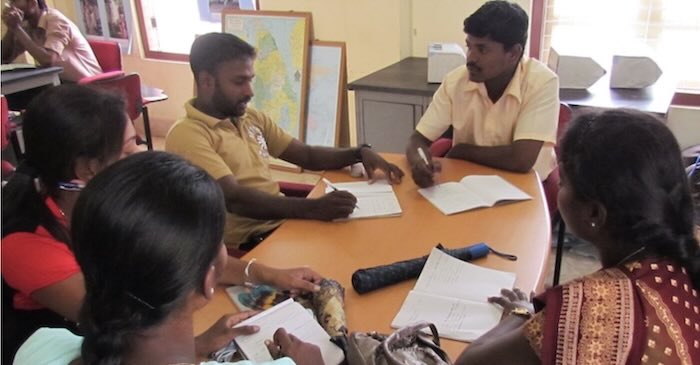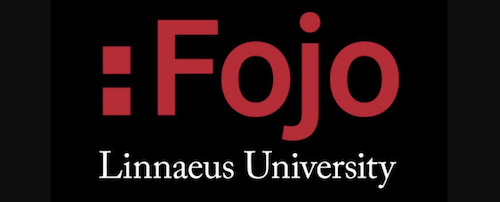 Find out how to make the best use of the training material on Media Helping Media.
Find out how to make the best use of the training material on Media Helping Media.
Preserving the fundamentals of good journalism
Media Helping Media (MHM) works to safeguard the core principles of accurate, impartial, public-service journalism. We offer free training materials in multiple formats designed to be downloaded, adapted, and used worldwide.
Check out more than 250 articles on journalism best practice
Check out more than 140 free training resources
 Try our introduction to journalism curriculum then take the MHM news professionalism test.
Try our introduction to journalism curriculum then take the MHM news professionalism test.
Constructing a news package for radio
This is a short training module setting out the basics for creating a news package for radio. It's been created for those starting out in radio journalism.
Clarity is as important as accuracy
Journalists must write clearly as well as accurately using accessible language that the audience can understand.
What editors look for when hiring
What's the best preparation for a career in journalism? Media Helping Media asked some experts in the field what they look for when hiring staff.
Why editorial ethics are important
The Media Helping Media ethics section is designed to help journalists navigate some of the challenges they might face as they go about their work.
Photojournalism and ethics
The following are commonly accepted ethical guidelines for photojournalists adopted by most mainstream media.
Integrity and journalism
Without integrity your journalism is untrustworthy and suspect. Integrity is essential if a journalist wants to investigate issues, shine a light in dark places, and to dig where others don't.
Making documentaries for radio
Documentaries are in-depth stories told in a more interesting way. A great documentary engages listeners and puts them at the heart of the storytelling.
The essential role of journalism
Journalism isn’t just reporting, it’s witnessing history, challenging power, amplifying unheard voices, and making sense of a chaotic world.
Updating an online news item
Journalists working on a news website are responsible for publishing content on every device their users to turn to in order to access information.
AI and investigative journalism
The landscape of investigative journalism is undergoing a significant transformation, with artificial intelligence (AI) emerging as a powerful ally for reporters.
How to investigate corruption safely
Investigating and reporting on corruption involves risk. Here we look at how investigative journalists stay safe when covering stories that are likely to anger those who are determined to keep their secrets hidden.
Social media in news production
Social media has fundamentally disrupted the media landscape, forcing traditional outlets to confront their operational models and redefine their role in a rapidly evolving information ecosystem.
Setting up community radio
Launching a community radio station is about more than just broadcasting news, it’s about creating a hub for local voices, sharing vital information, and building community spirit.
Adopting the ‘big story’ approach
Planning is critically important in the news business. It’s the mark of professionalism and the essence of good coverage. But there are some things you can’t plan.Big stories happen out of the blue. And when they happen you have to spring into action immediately.
Community radio project plan
Launching a community radio station is a complicated exercise with lots of overlapping elements. The most important thing to do, before you do anything else, is to stop and think.
Winning audience trust and loyalty
A media organisation needs to be clear about what it stands for in order to win the trust of the audience.
Organisations supporting independent media
We have compiled a list of organisations that offer operational, strategic, and financial/business support for independent media, helping outlets survive, grow, and enhance their impact.
Journalistic ethics – scenario
In this scenario a reporter feels ethically compromised after accepting hospitality from a developer who subsequently pressured them for favourable coverage.
Emotional assumptions – scenario
In this scenario a journalist lets their own emotional assumptions colour their news judgement resulting in misinformation.
Legal threats – scenario
In this scenario a local newspaper reporter faces legal threats for a factual planning application report that lacked the applicant's demanded "positive spin."
Tool: Gap analysis in media training
'Gap analysis' is an essential part of any 'training of trainers' (ToT) programme because it helps identify the specific needs of participants.
International media training
Those invited to help the media overseas need to ensure that the training they offer is continually refreshed in order to stay relevant and useful.
The qualities required for media training
A trainer must not shout at participants or get into loud arguments. They must not make those attending their courses feel small or humiliate them.
Tool: Training of Trainers (ToT)
Training of Trainers (ToT) courses are designed to equip individuals with the skills and knowledge needed to train others.
Tool: Motive, veracity, and security (MVS) matrix
This free Media Helping Media matrix is designed to help journalists assess the risks and benefits of investigating a tip-off or a leak.
Tool: News Meeting Manager
This tool is designed to help editors prepare for and run an effective news meeting that results in the production of original and informative journalism.
 Media Helping Media is proud to be hosted by the Fojo Media Institute.
Media Helping Media is proud to be hosted by the Fojo Media Institute.
 Check our Facebook page for regular updates from Media Helping Media.
Check our Facebook page for regular updates from Media Helping Media.
 The content on Media Helping Media (MHM) is released via Creative Commons BY NC SA 4.0.
The content on Media Helping Media (MHM) is released via Creative Commons BY NC SA 4.0.
 Find out
Find out